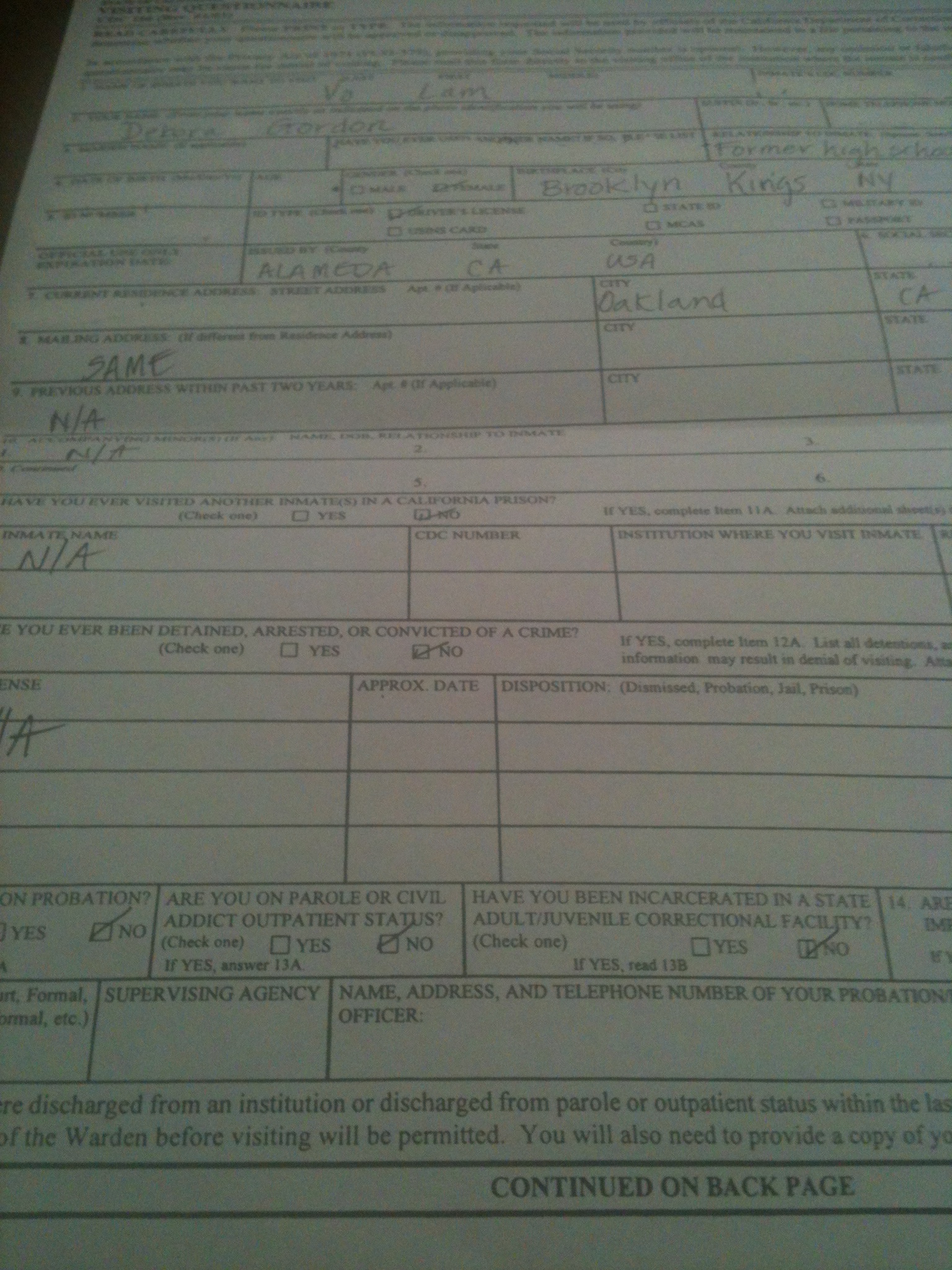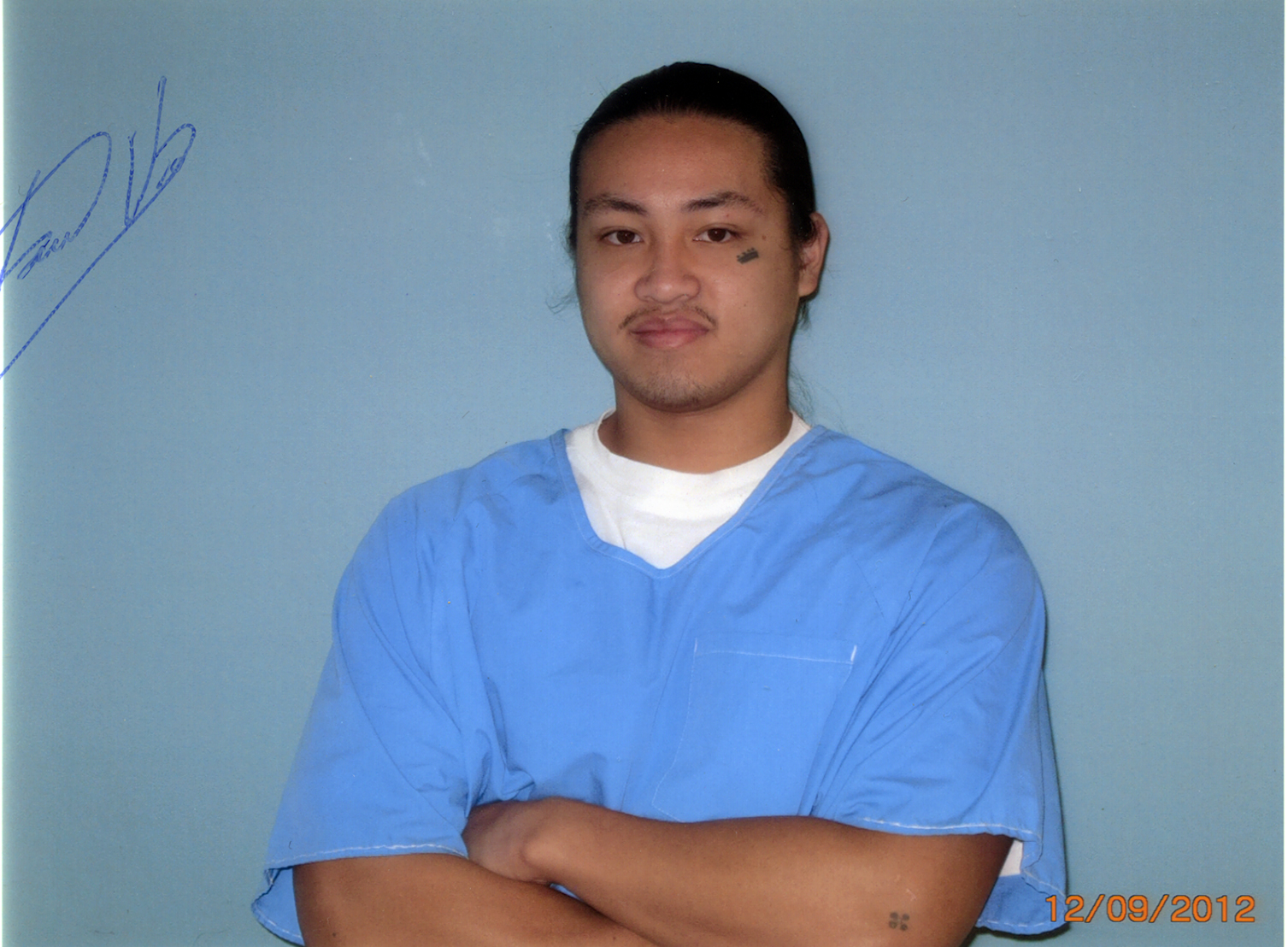

By Debora Gordon
On a more personal level than the criminal justice system, many of us on the “outside” also seek redress for harm done. In the school system, of late, there has been a focus on a process called restorative justice, which in part is a mediated discussion between the wrong-doer and the victim, as part of the healing process for both. I am interested in the concept of forgiveness, if it is possible, if it is for the forgiver or the forgiven, the victim or the offender.
I wrote to Lam on November 13 and asked “Do you think that forgiveness is for the offender or for the victim? What is the role of the offender in terms of forgiveness? What must he do to “earn” or “merit” forgiveness? Are some crimes simply unforgivable? If you had been the victim of your crime, would you forgive the perpetrator?”
He wrote back on November 27:
On the topic of forgiveness. I have always felt we all deserve a second chance. I have felt that way starting in my teenage years. I truly agree that if people in the world are more forgiving it would be much more drama free world. But not everyone is going to see it our way, especially those that have gone through great suffering and major loses. (NB: I am not sure what he is agreeing with since I did not write that more forgiveness would reduce “drama,” whatever that may mean to him.)
How to get people with enormous amount of hatred to see the side to forgiveness? Their style of thinking would have to be realist. Would I be able to forgive the person who rape and killed my daughter? I can’t say for sure because I would know. But I’ve forgiven the people or person who shot me. If you think about it, I put myself in that situation and that was part of the gangbanging life style. So why should I keep that hatred for them when I’am moving on in life.
Forgiveness is for the victim. They are the one that was hurt or experience the negative things in the situation. So they are the one that has the power to forgive. As for the offender, if we can come to term that we made a mistake then we must hope that they can forgive and see how truly sorry we are. As for earning forgiveness, it all depend on how bad the situation is. Its difficult to be forgiven especially if it’s something serious. I feel if you just pour your heart out and speak for the heart as well as show through actions then words, you’ll have a much bigger chance of being forgiven.
One thing that struck me in particular when reading this was that I can see that Lam wants to be forgiven. On the other hand, I did not see or feel a statement of deep and profound remorse and sorrow, or even just words, “I am deeply sorry for what happened to Alicia (the victim).”
When I spoke with him in person when I visited the prison a few weeks later, we talked about this issue.
But before that trip to the prison, I spoke to the Victim/Witness Advocate who helped put me in touch with Alicia and her mother, the Public Information Officer at the prison, and to Lam’s attorney.
Next time: Lam’s Lawyer: “He could have done it, but I do not think he did.”
Debora Gordon is a writer, artist, educator and non-violence activist. She has been living in Oakland since 1991, moving here to become a teacher in the Oakland Unified School District. In all of these roles, Debora is interested in developing a life of the mind. “As a mere human living in these simultaneously thrilling and troubled times,” Debora says, “I try to tread lightly, live thoughtfully, teach peace, and not take myself too seriously.”




Be the first to comment